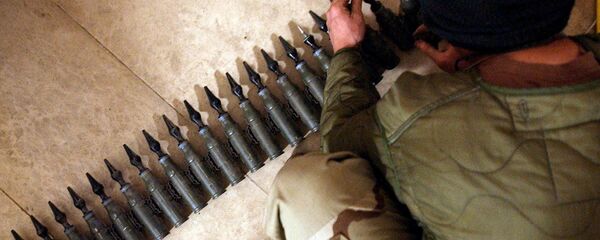Airstrikes intended for oil cargo trucks in Daesh-held areas of Syria featured depleted uranium (DU) weaponry, Foreign Policy reports. The Air Force unleashed more than 5,200 ‘steel-penetrating arrows’ 30 mm rounds from A-10 Thunderbolts on missions that took place November 16 and November 22, 2015, US Central Command spokesman Maj. Josh Jacques told Airwars and Foreign Policy. Approximately 250 enemy vehicle targets were eliminated during the sortie, Jacques said.
The use of DU spreads radioactive particles into the air that "inhaled or ingested," causes "disastrous damage" from heavy metal poisoning or internal radiation exposure, according to a study from the University of the Ryukyus in Japan. Contamination to the environment imposed by DU ammo "would remain almost indefinitely," the report said. "The heartbreaking image of Iraqi children suffering from illness caused by DU exposure is a prelude to a tragedy we will encounter in the days ahead," the authors wrote.
Hundreds of thousands of DU rounds fired into Iraq sparked fury among local communities alleging that the toxic war tactics caused birth defects and cancer, the Chicago Tribune reported. The precise location where DU weapons were used has not been specified by military sources. Jacques only told Foreign Policy and Airwars that the targets were eliminated in the country’s eastern desert.
In 2015, anti-Daesh coalition spokesman John Moore said, "US and coalition aircraft have not been and will not be using depleted uranium munitions in Iraq or Syria during Operation Inherent Resolve." It remains unclear how the US military can be held accountable for making such promises and then blatantly defying them.



